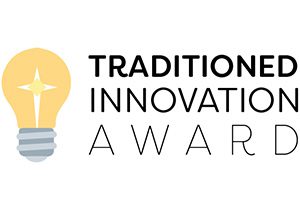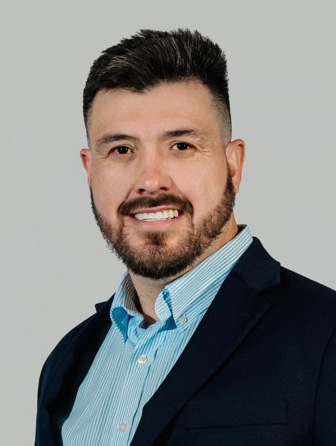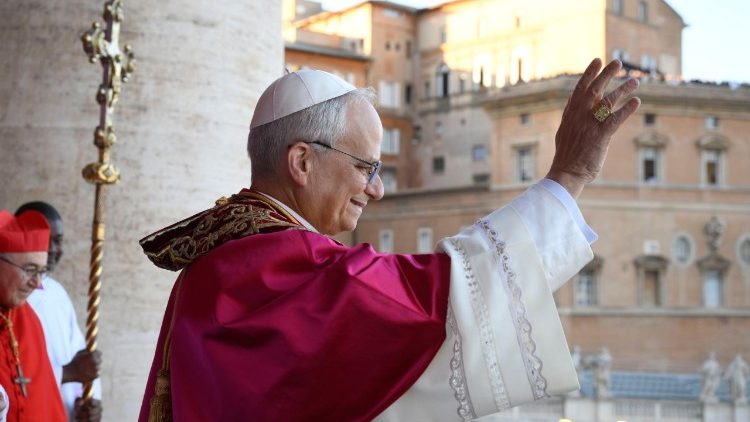After Pope Leo XIV was elected, Vicente Del Real realized he had something in common with the new pontiff.
“I went to Catholic Theological Union. He graduated from CTU, I graduated from CTU,” said Del Real, founder of Iskali, a mentorship and faith formation nonprofit for young Latino Catholic adults. “So now I get to flex that I graduated from the same school as the pope!”
He’s not the only one. Del Real saw on social media that one of the young people he works with also had discovered a connection.
“The other day, one of the participants of Iskali posted a story on social media that said, ‘I just realized I was born in the same hospital as the Pope,’” Del Real said. “And then it said, ‘Am I next?’”
Having a pope who is from their hometown and speaks fluent Spanish is inspiring and hopeful, especially at this time, when immigration raids are frightening people across the country, Del Real said.
“There was huge excitement for young people, knowing that the pope understands their context, speaks their language and — especially for young adults from Chicago — that he grew up here,” Del Real said.
Del Real founded Iskali 15 years ago as a way to help the Catholic Church retain second-generation Latinos, who typically speak English and are looking for a different kind of faith experience from that of their parents. The organization, located in Maywood, Illinois, focuses on faith formation, mentorship, building community, scholarships and other offerings. He is an adjunct professor at Loyola University Chicago and is a nationally known speaker.

Traditioned Innovation Award Winner
Leadership Education at Duke Divinity recognizes institutions that act creatively in the face of challenges while remaining faithful to their mission and convictions. Winners received $10,000 to continue their work.
He spoke to Faith & Leadership’s Sally Hicks and Rory Boone about the hopeful message of Pope Leo and the contrast to fears caused by the Trump administration’s mass deportation actions. The following is an edited transcript.
Faith & Leadership: What has been the response to the new pope from you and the young Latinos that you work with?

Vicente Del Real: If you remember when the pope was introduced, he spoke in Italian and then he spoke in Spanish to the Peruvians. I thought that was so beautiful because that’s who he was thinking of; it’s a small diocese of Peru. That was beautiful.
Of course, we are in Chicago, and we’re super excited to have a pope who grew up in Chicago and to be able to visit his home, his neighborhood, his school. The Augustinians in Chicago all knew him so that was very, very exciting.
He recently shared a message at the celebration that was hosted at the White Sox stadium. He spoke in English in a perfect Chicago accent, and I think that also was beautiful because you have a pope who is able to speak to almost an entire continent in their first language.
I also believe that it has implications, right? He knows the church in Latin America. He also knows the church in the U.S. I think that is important, to have somebody who is able to speak to a particular context, not only in the language but in the knowledge of the particular context. So I’m excited for his papacy.
F&L: There’s a sense of delight about it, right? That he’s from Chicago, that he speaks Spanish.
VDR: Yep.
F&L: What’s the significance or symbolism of his choosing to speak in Spanish?
VDR: Well, I think that speaks of his spirit. He’s an Augustinian missionary, right? I think he was speaking as a missionary. Somebody who grew up in North America but decided to go on mission and work with the poor and the southern side of the hemisphere.
I also think that that speaks about where his heart is. I don’t know him, but that’s my own interpretation. He’s a missionary, and his heart is with the people that he missions to. I think that’s beautiful. That also speaks to the love that he has for the people. He wanted to say hi, and he wasn’t coming back, you know?
F&L: For the young Latinos involved in your programs, what’s your sense of their reaction to it? Is it sort of ho-hum or is there real excitement?
VDR: I think the recent celebration that was hosted in the stadium was incredible because it was put together in a month and [tens of thousands of people] showed up. I think that speaks of the hope to have a pope that is from this city. He has visited that stadium. There’s pictures of him in this stadium at the World Series.
When I was listening to the video that he did for young people, he was talking about the importance of community, the importance of hope, and I was like, “Wow, he’s a Latino at heart.” He’s speaking about community, family connection, the communal part of the faith. That was tremendous. That was beautiful. He was talking about hope and creating hope.
F&L: A few months have gone by since his election. Do you see any concerns brewing in your community related to the transition?
VDR: We are coming from a papacy that was very prophetic. Pope Francis and his commitment to the marginalized was very prophetic. He spoke his mind, and that was kind of his personality. Now we are looking at a transition.
It is very interesting to think about what Pope Leo first said: may the peace of the resurrected Christ be with you. And I’ve been thinking about that a lot, especially the last few days because the Middle East is now at war. Europe is at war.
I think more than ever, the peace of the resurrected Christ is something we all need, not only as a country but as a society. We’re living in hard times.
The other day I was facilitating a retreat for young people and when I got home I watched the news. Since they were in a retreat they didn’t have their phones, so when I came back in the morning I said, “You know what? I must tell you the U.S. bombed Iran last night.”
You should’ve seen the faces of these young people just say, Oh, my God. We’re at war.
There’s all this violence going on in the world. Locally too, you know? You see videos of workers being picked up by immigration; of communities reacting to the violent separation of families.
And especially on this topic, the violent way of enforcing immigration policy. People that are masked, that are not identified, are picking people up. That’s scary.
Of course that has come up in conversations, and as a ministry we care for the hopes and fears of the people. We share the pain; we share the fear too. But we also share the call to be people of hope, especially in the Jubilee of hope.
In these difficult times, how can we be people of peace? How can we be people of hope? Those are questions to wrestle with. Those are not easy questions that I’ve been asking myself. How can I be a leader of hope when I myself am fearful? I’m a DACA recipient.
F&L: How have the raids affected your community in Chicago?
VDR: Fear affects us on different levels. I know of families that are not going out, that are sending their children to buy groceries. I know of people who are not attending church because they are avoiding going out.
This has serious implications on how people go about their daily lives. I have people say, “I didn’t go to work today because I just don’t feel safe.” So it’s real. You see it in the news and then you see it with your friends and you’re like, “Wow, this is not just happening in L.A.”
My parents are legal residents. The other day I was home, and my parents were on their way to Mass when my mom rushed back to the house and said, “I forgot my ID.” And I’m thinking, “My God, my mom?”
We live a block away from church, and it’s incredible that my mom, a 74-year-old, felt that she needed to rush back to her house on her way to church because she didn’t have her ID.
We annually host a picnic for families to come together. We got several messages from our friends that said, “Our families are not coming. We are not going out. We’re not going anywhere.”
I hear that and I understand that. Yes, I want to see you and celebrate the faith that brings us together, the community that brings us together, but I also understand it, you know?
It’s real. It’s real. I can speak in first person, but also from the people that I work with and the people that we work for, the young people. This is a difficult time. People asking themselves, what rights do I have?
If you have ever experienced fear, it’s not a very nice thing. It’s a sense of uncertainty, it’s a sense of insecurity. That has mental implications, financial implications, mood implications of how people go about their lives.
F&L: Is there a difference between the older and the younger generation’s responses?
VDR: You have to think of the Hispanic community as mixed status, right? The parents of our young adults are immigrants for the most part. They came to this country sometime in the last 40 years. Some are naturalized citizens, some are legal residents. Some have not had the opportunity to fix their status just because there’s no pathway. There’s just no pathway for people who have worked, contributed and paid taxes and contribute to the well-being of their community.
I saw a video in a field in California of ICE agents tracking down a worker in the field, and I’m thinking, Is this what we’ve come to? That’s who you figure is a threat to the country? It just feels lazy. It feels that you don’t want to do real investigative work and go out for the people who have committed crimes or are members of the cartels. You just want to pick up field workers. It just feels like no real investigative work has been done.
F&L: Do you think the second generation feels safer? Are your young people more concerned about their parents or also for themselves?
VDR: I’m doing an interpretation here. I think they’re more concerned about their parents, especially because many of the parents don’t speak the language.
I’m pretty sure many of them are also careful for themselves. When you have a group racially profiling people and deciding who to arrest or where to go to arrest people just based on how they feel — we know that citizens, legal residents, have been detained just because they were in the wrong place.
F&L: Does Iskali do any kind of activism regarding immigration?
VDR: All the work that Iskali does is pastoral work, but not necessarily direct activism. We see ourselves as an organization that hopes to accompany young people and their pastoral needs. We talk about the issues that affect our community. I wouldn’t say that we do activism; I would say that these are pastoral realities.
F&L: What or who inspired you to start your nonprofit to offer this pastoral care? Why is mentoring important?
VDR: What inspired me is the need; who inspired me are the people with the needs. Iskali is something that was conceived with the people that we serve and for the people that we serve. The reason I started Iskali was because there was a great need for somebody to accompany young people in the parish, to walk with them.
I asked the pastor, “Is it OK if I do it?” And he said, “Yes.” The rest is history.
Why mentor other people? I think in our limited lifespan we learn so much, but sometimes the learning that you get at 25, you wish that you had it when you were 20. The learning that you get when you’re 30, you wish you had it when you were 25.
I think it’s almost an obligation to pass on that knowledge. If your lived experiences can help others avoid hurt, can give guidance to the newer generation, why not?
I always teach the young people that I work with that our biggest treasure is our story. Our biggest treasures are life experiences. When you share them with others who have a similar background, a similar context, many times those are learnings that apply to their lives.
I can tell you that every good decision I have made is not because of me, it’s because of my mentors. Because somebody who is older than me has been willing to hold my hand and say, “I did this. How does that sound to you? Why don’t you talk to this person? Why don’t you call this number? Why don’t you send an email to this person? Why don’t you ask this other person?”
And that’s hand holding, right? It’s providing opportunity. I’ve been fortunate enough to have great mentors in my life who have done that for me, and I’m just trying to pay it back.



















